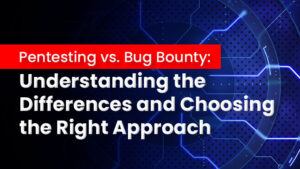Introduction
MongoDB is a database management system from MongoDB Inc. known for its NoSQL database, and it works with documents in its system. In contrast, Oracle is a relational database management system from Oracle Corporation. MongoDB and Oracle are available on all major operating systems, including Windows, Linux, and Unix. An Oracle system is made up of databases, tables, and data, whereas a MongoDB system is made up of documents in fields. This article covers detailed knowledge of MongoDB and Oracle and their differences.
MongoDB is a popular open-source NoSQL document-oriented database that stores data using JSON-like documents with dynamic schemas. It was first released in 2009 and is developed and maintained by MongoDB Inc.
Some of the features of MongoDB include horizontal scalability, high availability, automatic sharding, and a flexible data model. It supports ad hoc queries, indexing, and aggregation and can use many programming languages and frameworks.
MongoDB is a popular database that is used for online applications, real-time analytics, and content management systems. Its scalability and versatility make it a popular choice for enterprises that require the management of enormous amounts of data that change often.
MongoDB Benefits
Some of the benefits of using MongoDB are:
Scalability: MongoDB is highly scalable and can handle large amounts of data. It uses a sharding technique to scale horizontally across multiple machines.
Flexibility: MongoDB features a flexible data schema that allows for simple interaction with a wide range of computer languages and frameworks. Its dynamic schema feature will enable you to store data without defining a rigid schema beforehand.
High Performance: MongoDB provides high-performance operations and supports advanced indexing and querying options, which can speed up query execution time.
Agile Development: MongoDB’s flexible data model and dynamic schema make it easy to iterate and develop applications quickly, reducing the time required for application development.
Document-Oriented: MongoDB is a document-oriented database that stores data in a format similar to JSON objects. This makes it easy to work with and understand, especially for developers used to JSON data.
Open-source: MongoDB is open-source, meaning it is free to use and has an active community contributing to its development and improvement.
High Availability: MongoDB provides high availability through its replica set feature. The replica set feature ensures that data is always available, even in a server failure.
Oracle is a multinational technology corporation specializing in developing and selling database software and technology, cloud engineering systems, and enterprise software products. It was founded in 1977 and is headquartered in Redwood City, California.
Oracle provides a wide range of enterprise software products, including Customer Relationship Management (CRM), Supply Chain Management (SCM), and Human Capital Management (HCM) software, in addition to database software. It also offers cloud infrastructure and platform services, including Oracle Cloud Infrastructure (OCI) and Oracle Cloud Platform (OCP).
Oracle has a significant presence in the enterprise software market and is known for its strong focus on innovation and investment in research and development.
Oracle Benefits
Some of the benefits of using Oracle are:
Reliability: Oracle databases are known for their reliability and high availability. They have features like automatic storage management, data guard, and real application clusters, ensuring your data is always accessible.
Scalability: Oracle databases can scale vertically and horizontally, making them ideal for large enterprise applications. You can add resources to an Oracle database to handle increasing loads.
Security: Oracle databases are protected by a strong security framework that includes data encryption, user authentication, and access control. This makes them suitable for handling sensitive data.
High Performance: Oracle databases are optimized for high performance and can handle large amounts of data. They support advanced indexing and query optimization techniques that speed up query execution times.
Multitenancy: Oracle databases have a multitenant architecture that allows multiple applications to share the same instance, reducing the cost of hardware and software licenses.
Support and Services: Oracle provides comprehensive support and services for its products, including documentation, training, and consulting services. This ensures you have the resources to use and maintain your Oracle database.
Key Differences Between MongoDB and Oracle
Both are common market choices; let us look at some of the key differences:
- MongoDB stores data in collections in the form of documents and fields. Data in the Oracle database, on the other hand, is kept in the traditional RDBM method, i.e., as tablets in the form of rows and columns.
- MongoDB’s partitioning methods (methods for storing different data on different nodes) are sharding, whereas horizontal partitioning is used in Oracle databases.
- Oracle Partitioning is an optional feature in the Oracle database.
- SQL is not supported in MongoDB, but it is in Oracle DB.
- MongoDB is a free and open-source database, whereas Oracle is a commercial database (a restricted free version is available in the market).
- The JavaScript programming language can be used to create server-side scripting for MongoDB. Using the PL/SQL programming language, the same can be done for the Oracle database.
| The basis of Comparison |
MongoDB |
Oracle |
| Implementation language |
MongoDB is written in the programming languages C++, C, and JavaScript. |
Oracle databases are written in Assembly, C, and C++ computer languages. |
| Server-side scripts |
JavaScript is the programming language used in MongoDB’s server-side scripting. |
In Oracle DB, the programming language used in server-side scripting is PL/SQL.
Java is also used in the development of stored procedures. |
| Specific characteristics |
MongoDB is regarded as the next-generation database, assisting businesses in transforming their industries by gaining control of the power of data. |
Oracle database is the world’s most popular and multi-model database.
It is frequently used to execute Online Transaction Processing (OLTP), Data Warehousing (DW), and combined (OLTP & DW) database workloads.
|
Users Selecting MongoDB Over Oracle
MongoDB, like Oracle, has a broad range of features and functionality beyond simple NoSQL data storage. MongoDB includes a sophisticated query language, highly effective secondary indexes (including text search and geographic), a robust aggregation framework for data analysis, faceted search, graph processing, and more. MongoDB allows you to leverage these functionalities across a broader range of data types than a relational database, and you can do so at scale.
Conclusion
The choice between MongoDB and Oracle largely depends on a project’s specific needs and requirements. MongoDB may be a better fit for projects that require high scalability and flexible data modeling.
In comparison, Oracle may be a better fit for projects that require strict data schema and robust transactional capabilities. Cost is also a significant factor, with MongoDB being more cost-effective for many use cases.







